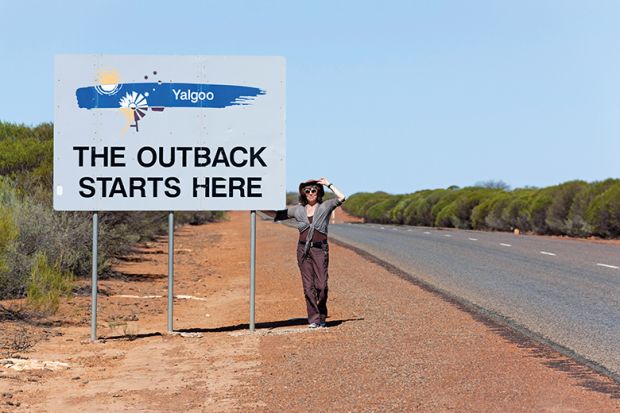Regional Australian universities are converting parts of their sprawling estates into housing, as rural areas suffer the brunt of a nationwide accommodation squeeze.
In an echo of a trend among outer suburban-based institutions, universities beyond the cities are leveraging their increasingly valuable land to solve institutional and community problems – including housing shortages, which are now threatening enrolments in many countries.
A push for more on-campus accommodation began before the pandemic, as administrators sought to improve success rates and pastoral care for their students. It gained momentum after Covid-19 put pressure on regional housing, when city dwellers took advantage of work-from-home arrangements to relocate to the country.
Global events have also hampered construction, with rising costs and choked supply chains sending builders bankrupt, while long-term rental accommodation has been eroded by a flight to short-term alternatives such as Airbnb.
Charles Sturt University (CSU) is assessing current and future student accommodation needs as part of master planning at all its sites. Demand exceeds supply at its Port Macquarie and Wagga Wagga campuses, with another 120 beds being added next year at the former and up to 200 needed at the latter.
A spokesman said early analysis also indicated a need for more housing at Orange. He said that the post-Covid migration from metro areas had “tightened” rental markets in most of CSU’s regional locations, with local activities – such as the Cadia gold mine near Orange and military training bases at Wagga – adding to the pressure.
CSU is on a regional task force established by Wagga City Council to brainstorm solutions to “the impending crisis”, he said. “The community is looking to us for help.”
Central Queensland University vice-chancellor Nick Klomp said rental vacancy rates were below 1 per cent in Rockhampton, where the institution is headquartered.
While mining booms had produced localised accommodation crunches in some centres, the problem had spread “everywhere”, proving toughest in the regions. “You just don’t have that choice of moving suburbs or universities, like you do in cities,” he said.
Professor Klomp said Australia needed to learn from past failures to leave a “legacy” from housing drives. For example, when accommodation was needed for workers building major gas processing facilities at Gladstone, temporary lodgings constructed on an island in 2012 had proven of little enduring use to locals.
He has proposed that the Queensland transport department use university land to house workers building a ring road around Rockhampton, with the buildings converted to student, aged or disadvantaged accommodation when the project is completed. He is also negotiating with the state government about releasing university land for community housing.
“I’ve learned more about urban and land planning than I ever wanted to know,” he said. “I’m not talking about making profits. I’m talking about things that are good for the community, that would still be in the interests of the university long-term.”
Southern Cross University says on-campus accommodation at its Lismore and Coffs Harbour campuses is in “high demand”, and it is supporting a proposal for a private student housing block across the road from its Gold Coast campus. James Cook University opened a 400-plus bed student residence on its Townsville campus last year.
Student accommodation provider Campus Living Villages (CLV) said universities’ growing appetite for on-campus housing had been a factor in its decision to sell its off-campus properties and focus exclusively on private-public partnerships with universities.
Managing director John Schroder said non-metropolitan institutions had recognised the “strategic logic” of increasing their own student accommodation about five years ago. The advantages included environmental benefits, more effective pastoral care, “walkability” – with less need for transport services, private vehicles or parking – and better student connectivity with their institutions.
This had the potential to help reduce attrition, boosting the stock of prospective postgraduates while reducing the need to fill vacant undergraduate places – yielding financial as well as educational gains for universities with on-campus housing. “Either they do it themselves or they outsource it to an organisation like CLV,” Mr Schroder said.
He predicted more construction of both on- and off-campus accommodation. “With the current housing supply and immigration coming back, we’re going to need more of both. The challenge around off-campus developments is whether they are 100 per cent designed for students or whether they can flex to other possible uses over time.”
Alec Webb, executive director of the Regional Universities Network, said accommodation was a “hot topic” at member forums. “It’s something that we mention to any politician that gives us 30 seconds of their time.
“The return of international students has really exposed this issue for regional universities. Accommodation just isn’t available, or it is now so expensive that some students simply can’t afford to stay there. In some cases, that’s meant students have moved to metropolitan areas where the rental pressures are lower.”





